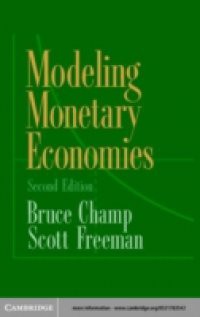This upper-level undergraduate textbook, now in its second editon, approaches monetary economics using the classical paradigm of rational agents in a market setting. Too often monetary economics has been taught as a collection of facts about existing institutions for students to memorize. By teaching from first principles, the authors aim to instruct students not only in existing monetary policies and institutions but also in what policies and institutions may or should exist in the future. The text builds on a simple, clear monetary model and applies this framework consistently to a wide variety of monetary questions. The authors have added in this second edition new material on speculative attacks on currencies, social security, currency boards, central banking alternatives, the payments system, and the Lucas model of price surprises. Discussions of many topics have been extended, presentations of data greatly expanded, and new exercises added.

